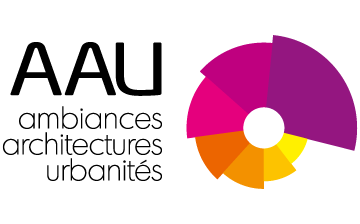Les nouvelles plages urbaines : le dépaysement comme moteur de transformation et de renouvellement des espaces publics contemporains
New urban beaches: a change of scenery as the driving force for the transformation and the renewal of contemporary public spaces.
Maroua En-Nejjari - Thèse de doctorat soutenue en 2021
Encadrement : Daniel Siret directeur de thèse, Ignacio Requena co-encadrant. / Supervision: Supervisor Daniel Siret, Co-supervisor Ignacio Requena.
Financement : Contrat doctoral du Ministère de la Culture, 2017-2020 / Funding: French Ministry of Cultural, doctoral contract, 2017-2020
FR
Qu’elle relève de l’urbanisme événementiel ou de l’appropriation spontanée de la ville par ses citadins, la « mise en plage » de l’espace public modifie, temporairement ou de manière pérenne, l’attractivité d’un espace urbain à travers la création d’une rupture avec le mode de vie et les pratiques habituelles de celui-ci. Les plages urbaines, à travers un même dispositif spatial et sensible, s’inscrivent dans plusieurs problématiques de la ville contemporaine et ont une action simultanée sur différentes dimensions historiques, sociales, politiques, économiques et environnementales de la vie urbaine.
La thèse proposée porte sur les plages urbaines scénographiées ou spontanées des villes non balnéaires. Ces espaces ont été principalement étudiés par la sociologie, la géographie ou l’ethnographie, en portant l’intérêt sur leurs dimensions évènementielles, touristiques ou sociales. Tout en intégrant ces dimensions essentielles, la thèse s’intéressera plus spécifiquement aux mises en œuvre, aux formes matérielles et spatiales, et aux appropriations et usages de ces nouvelles plages urbaines. Elle aura pour objectif d’évaluer la manière dont l’architecture appréhende le besoin d’éprouver l’expérience balnéaire en ville, en identifiant les conditions d’aménagement, d’échelle, d’exposition, de matière et d’ambiance qui définissent la plage urbaine et créent le sentiment de dépaysement en ville. Elle cherchera également à évaluer la capacité des plages urbaines scénographiées ou spontanées à proposer des solutions aux problématiques environnementales de la ville contemporaine, liées aux conséquences du changement climatique, en répondant notamment au besoin croissant de rafraichissement urbain en été.
Il s’agira ainsi d’explorer le potentiel de l’imaginaire de la plage comme moteur de transformation et de renouvellement des espaces publics contemporains des villes non balnéaires, à travers deux points de vue complémentaires : celui du bien être citadin et du ré-enchantement de la vie urbaine ; et celui de l’architecture et de l’aménagement à travers l’évolution des espaces publics et l’émergence de nouvelles urbanités et sociabilités contemporaines. Pour répondre à ces objectifs, la démarche s’articulera autour de trois grands axes de recherche alternant une approche théorique nourrie d’un état de l’art pluridisciplinaire, une approche descriptive des conditions spatiales, matérielles et ambiantales des plages urbaines, et une approche immersive dans la vie de ces espaces, où le nouvel « estivant urbain » sera au centre de l’étude.
EN
Whether they deal with event-related urban planning or the spontaneous appropriation of the city by its citizens, the transformation of the public space into a beach changes, either temporary or on the long term, the attractivity of an urban space through the creation of a fracture with usual lifestyles and habits. Urban beaches, through a special and sensitive design, belong to different questions regarding the contemporary city and perform a simultaneous action on different historical, social, political, economic and environmental dimensions of urban life.
This thesis focuses on staged or spontaneous urban beaches in non-seaside towns. These spaces have been primarily studied through the prism of sociology, geography or ethnography, highlighting the interest on the event, tourist or social dimensions. While integrating these essential dimensions, the thesis will focus more specifically on the implementations, the material and spatial forms, and the appropriations and uses of these new urban beaches. It aims to evaluate the way architecture grasps the need to go through the seaside experience in the city, by identifying the conditions of development, scale, exposure, material and ambiance that define urban beaches and create a change of scenery in the city. It will also aim to evaluate the ability of staged or spontaneous urban beaches to propose solutions to environmental issues in the contemporary city, related to the consequences of global warming, by meeting the growing need for urban cooling systems in the summer.
We will explore the potential of the imagination surrounding the beach as a driving force for the transformation and renewal of urban contemporary public spaces that are not on the seaside, through two complementary perspectives: the citizen well-being and re-enchantment of urban life; and architecture and urban planning through the evolution of public spaces and the emergence of new contemporary urbanities and sociabilities. To address these objectives, our work will be articulated around three research lines alternating a theoretical approach built on a pluridisciplinary state of the art, a descriptive approach of spatial, material and ambient conditions of urban beaches, and an immersive approach in the life of these spaces, where the new “urban summer visitor” will be at the centre of the study.
